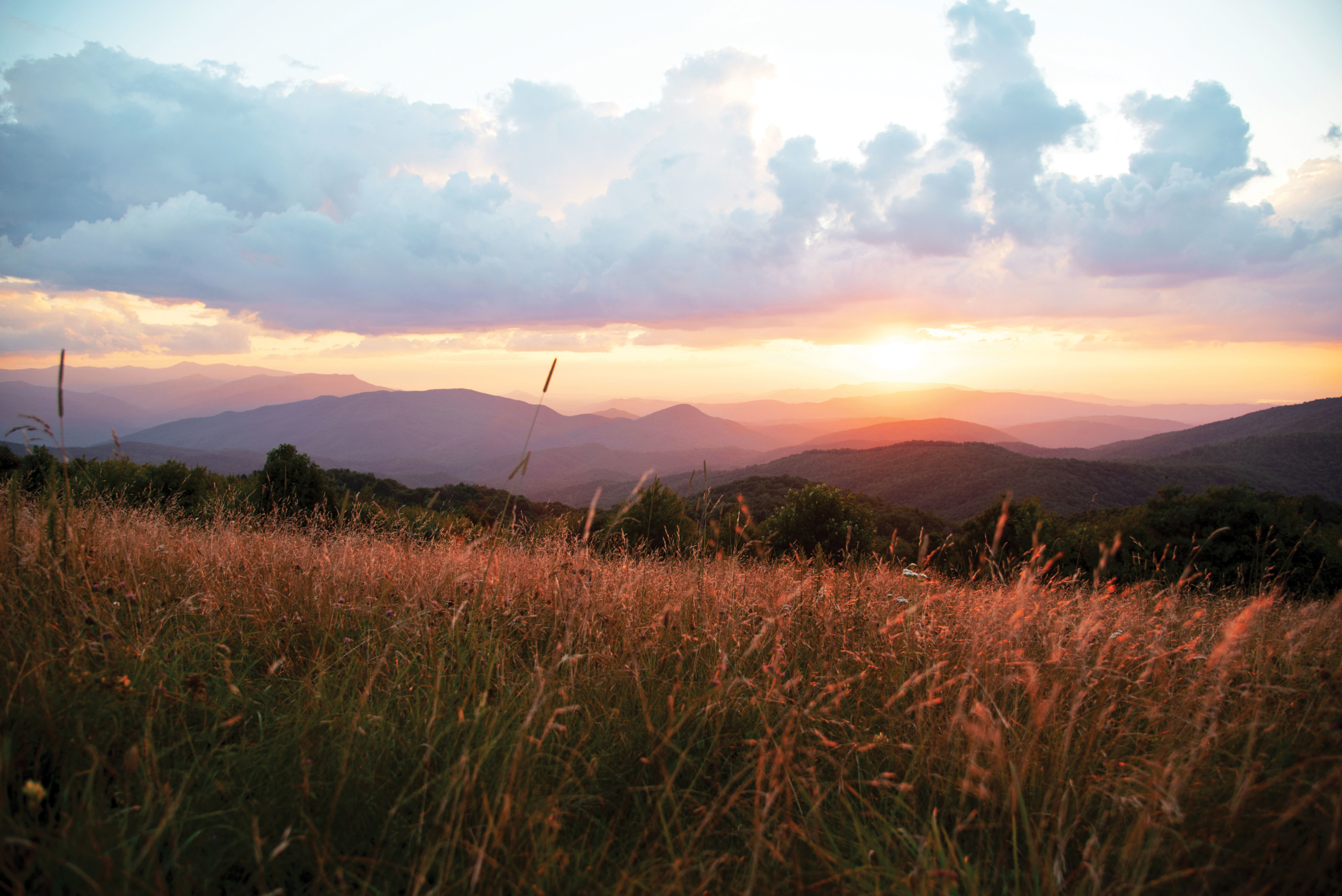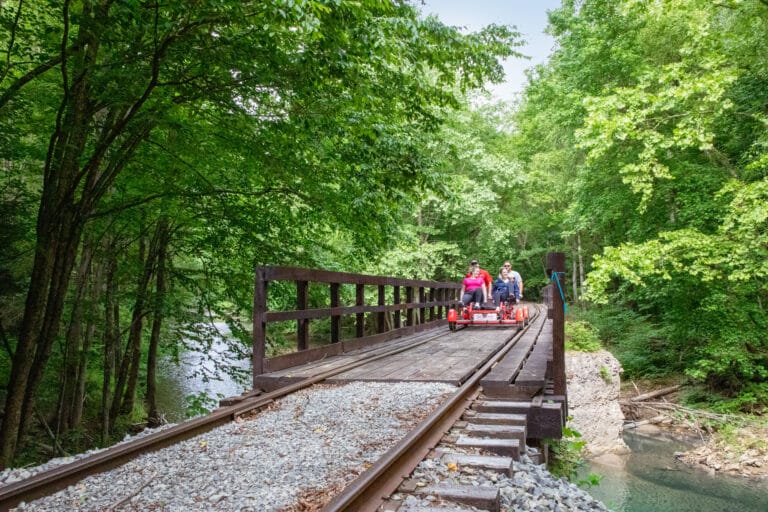An Appalachian Trail thru-hike is an incubator for several business pioneers in Southern Appalachia
Famous thinkers throughout history have touted the benefits walking can have on our ability to think creatively, from Aristotle and the Peripatetics (literally, “one who walks about”) to Henry David Thoreau. German philosopher Friedrich Nietzsche even went so far as to say that “all truly great thoughts are conceived by walking,” and while many other influential minds have subscribed to this wisdom, it’s only in the last few decades that science has started to catch up.
Researchers at Stanford recently published a study in the Journal of Experimental Psychology entitled “Give Your Ideas Some Legs: The Positive Effect of Walking on Creative Thinking.” Authors Marily Oppezzo and Daniel Schwartz relied on four different experiments to test their hypothesis, and their results indicated that walking contributed to a 60 percent boost in creativity among the 200 test subjects.
If you combine these findings with the numerous studies detailing the creative benefits of time spent in nature, then it stands to reason that the Appalachian Trail is one of the finest entrepreneurial incubators in the country. These five hikers and their companies are living proof, and they represent just a handful of the many businesses born on the trail.
Eddie Hinnant and the Packa
The A.T. was Eddie Hinnant’s first backpacking trip, which is a heck of a way to start. He was no stranger to camping, but he left the trail’s southern terminus blissfully ignorant of some of the unique challenges he would face along the way. In particular, he was unaware that the southern portion of the A.T. meanders through a temperate rainforest, and he would have been shocked to learn that many of the trail’s peaks are drenched in more than 100 inches of rain each year.
Hinnant had the necessary rain gear, but his journey was frequently brought to a halt when rain appeared. He was forced to stop and don his jacket and pack cover for even short spring showers and then remove them to prevent excess perspiration when weather passed over. For thru-hikers who spend all day walking, unnecessary stops can add up and impede progress. After completing his thru-hike in July of 2000, Hinnant mulled over the problem for a few months and came up with the Packa. The design is an elegantly simple combination of jacket and pack cover that allows a hiker to put on and take off the jacket without having to stop and remove their pack.
After filing a patent, Hinnant began prototyping Packas and shopping the idea around. A few major gear companies including Big Agnes expressed interest. While they never acted on it, Hinnant said the generous mentorship of Bill Gamber, founder of Big Agnes, was instrumental in helping him establish manufacturing in a reputable overseas factory used by the world’s biggest gear companies. Sales of the Packa have increased 25 percent in each of the last five years, and Hinnant, a natural inventor, has other patents pending for his latest designs.
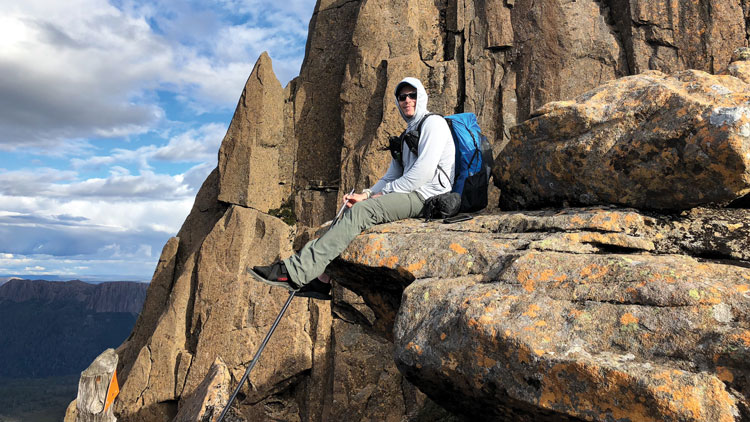
JOE VALESKO, FOUNDER OF ZPACKS AND A.T. THRU-HIKER
Joe Valesko and Zpacks
Joe Valesko first heard about the A.T. in the 90s. Although he wouldn’t undertake his thru-hike for years, he recalls that he immediately felt the allure of a continuous hiking trip. When the time came, he wasn’t impressed with the available equipment, so he found himself designing his own ultralight backpacking gear. He picked up the trail name “Lightweight Joe” during his 2004 trek, and other impressed hikers encouraged him to start selling his backpacks.
After years working full-time as a software engineer and building gear in his apartment on nights and weekends, Valesko went all-in on Zpacks in 2010. The late nights in the shop kept coming, but he approached his business with the persistence of a distance hiker: “A thru-hike takes months, and no one is forcing you to keep going. You’re your own boss. To hike the A.T.’s entire length you have to be a motivated self-starter, and these qualities translated well to starting and running a small business.”
To say Valesko is motivated is an understatement. Three years after his A.T. thru-hike, he took on the 2,653-mile Pacific Crest Trail. Two years later, he earned the long-distance “triple crown” by completing the 3,100-mile Continental Divide Trail.
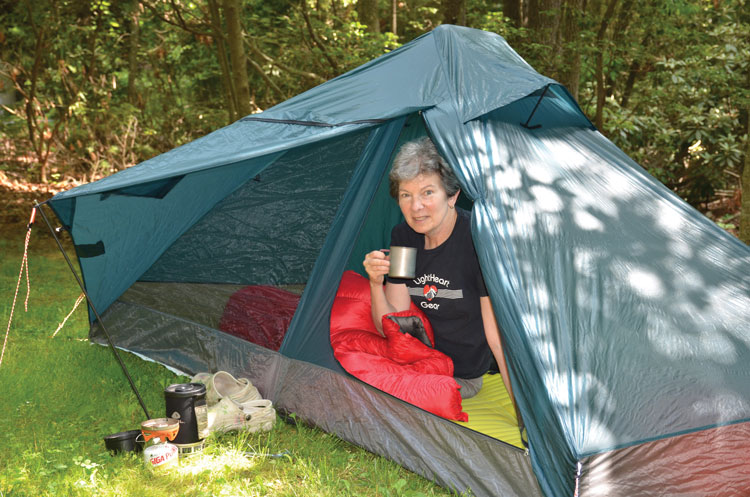
LIGHTHEART GEAR FOUNDER JUDY GROSS.
Judy Gross and LightHeart Gear
In 2006, halfway through the A.T,. Judy Gross was fed up with her tent. The design weighed almost five pounds, and to make lugging it around even worse, she was spending almost every night in trailside shelters. A fall that tore her rotator cuff eventually forced her back to civilization, but on her last night she saw the holy grail of shelters — a man sharing her camp set up a tent that was half the weight of hers, and with twice the space.
Away from the trail, she inquired about the tent on a Yahoo group for hikers (this was 2006, after all). A woman sent her a similar model with a broken zipper, and it didn’t take long before Gross was designing her own tents based off improvements to this homemade prototype.
She started looking around for a program to help her draw her creations and stumbled across Google Sketchup, a free CAD program that would become the jumping off point for her new designs. In 2009, she sold her first tents at the Franklin Trail Days hiker festival. As word spread, she leased a building to begin producing LightHeart Gear at scale.
In December of 2018, LightHeart moved into a new factory with three times the square footage. The additional space allows the company to produce more ultralight gear, and they also sew for a few other small companies that want to keep production here in America instead of sending it overseas. In addition to tents, Gross is a pioneer of pockets, and her new line of functional women’s hiking apparel aims to meet a need that has frustrated her for years.
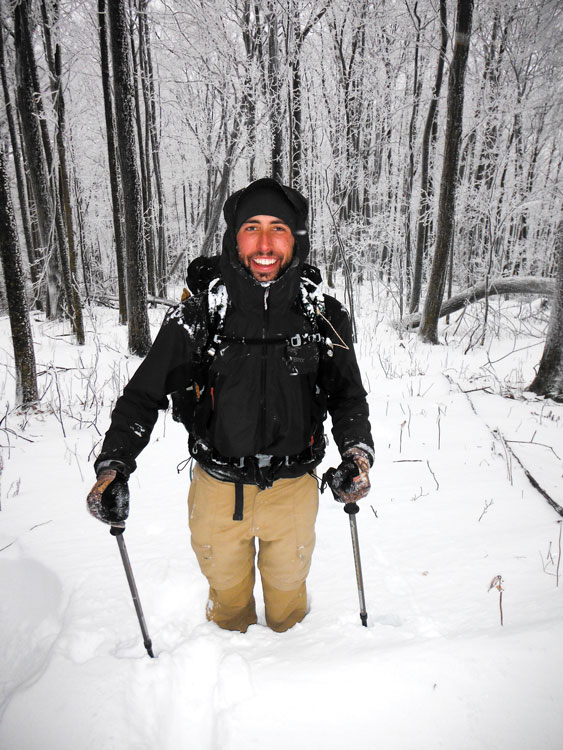
Chris Cage and GreenBelly
Chris Cage had a promising career as an accountant at a Fortune 500 company, but after two years he realized cubicle life wasn’t for him. Weekend trips as a Boy Scout in Georgia had introduced him to the A.T., and after a year of unemployed traveling, he decided to undertake his thru-hike. He credited completing the trail to preparation: “I’m an analytical kind of guy, and I think the research I did beforehand was critical because it helped set my expectations. I knew going in that it wouldn’t be a beautiful nature walk — there would be tough times.”
All that preparation meant he became very familiar with the backpacking market. Since he knew he didn’t want to go back to accounting, he kept his mind open to new ideas, and one came to him about two-thirds of the way through the trail. Distance hikers burn massive amounts of energy every day, and Cage noticed that the bars and snacks available to hikers were underperforming. Instead of heavily processed, 200-calorie bars for weightlifters, he decided to produce 600-calorie, all-natural bars that served as robust hiking meals.
While he could prepare all he wanted for the A.T., starting his own venture was another matter. “I would’ve guessed I was well-equipped to start a business, but there’s no sugarcoating it. In hindsight, I was as green and clueless as they come.” He persisted, and after a year of product development, market research, and website creation, GreenBelly raised $19,000 on Kickstarter in March of 2015. By July of the same year the company had officially launched. Thanks to a healthy appetite for its products, the business was sustainable almost immediately, and it’s more than doubled in growth every year since.
Evans Prater and Mount Inspiration
Evans Prater emerged from his thru-hike with a mantra: “Everything you carry should be light.” Although it might have started as a reference to the pounds in his pack, it evolved into an acknowledgement of the power of positivity. In the final weeks of his hike he was more than ready to be finished, but as he looks back he feels that seeing things through to the conclusion at Mt. Katahdin was invaluable. “I don’t think I would’ve been mentally equipped to run a business without that experience.”
Prater joked that he was driven to finish so he could get a 2185.3 tattoo on his calf (the precise mileage of the A.T. at the time), but sheer obstinacy is really what kept him going. He admitted that “I can’t set a goal for myself and not follow through with it,” and follow through he has. His company, Mount Inspiration, began as a single sticker with the phrase he coined. He sold them to local Asheville gift shops 10 at a time, and customers couldn’t get enough. Now, the business produces t-shirts, hoodies, hats, stickers, leggings, and more, all sporting funny or inspirational lines like “May the forest be with you,” “Be humble,” and “Hike more. Worry less.”
To Prater, sustainable manufacturing is a critical part of his business. He goes to great lengths (and considerable expense) to source environmentally friendly soybean inks, and all of Mount Inspiration’s apparel is made out of recycled or organic materials. To broaden the company’s impact, 5 percent of profits are donated to causes that advance environmental protections.
Georganna and Logan Seamon and Mountain Crossings
After spending time in Mt. Pleasant, S.C., Georganna and Logan Seamon knew they wanted to move back to the mountains. Because they didn’t have a specific location in mind, they decided to do what Georganna called “town-shopping.” The couple set out on a northbound thru-hike in 2009 to explore the mountain towns in the Appalachians, not knowing where they would land after their hike.
They didn’t end up far from the trail. In fact, the trail goes directly through Mountain Crossings, the outfitter where they started working in Blairsville, Ga. After three years on staff, the pair made an offer to buy the business. The owner hadn’t planned on selling, but he acquiesced because he felt like the Seamons were a good fit.
Every year, Georganna and Logan see about 4,000 thru-hikers come through their store in a three-month window. With so many experienced thru-hikers on staff, they’re able to offer a free “pack shakedown” to help hikers lighten their load whenever possible. If they’ve learned anything, it’s that you can’t judge a book by its cover. “People will surprise the hell out of you,” she says.
Now, the owners of Mountain Crossings are opening their second outfitter. Black Balsam Outdoors is located on Main Street in downtown Sylva, and this time they’re starting from the ground up. Building a business isn’t easy, but Georganna stands by the same wisdom that got them from Georgia to Maine: “If you feel like quitting, wait three days. Chances are, something’s gonna change.”
Starting a business is a long road, but that’s why the AT is an ideal incubator. In many ways, the ups and downs of this 2,200-mile journey make Y Combinator look like a walk in the park. Ultimately, however, it’s the whole of the experience — both immense triumphs and exhausting struggles — that prepares these and other entrepreneurs for life after the trail.
